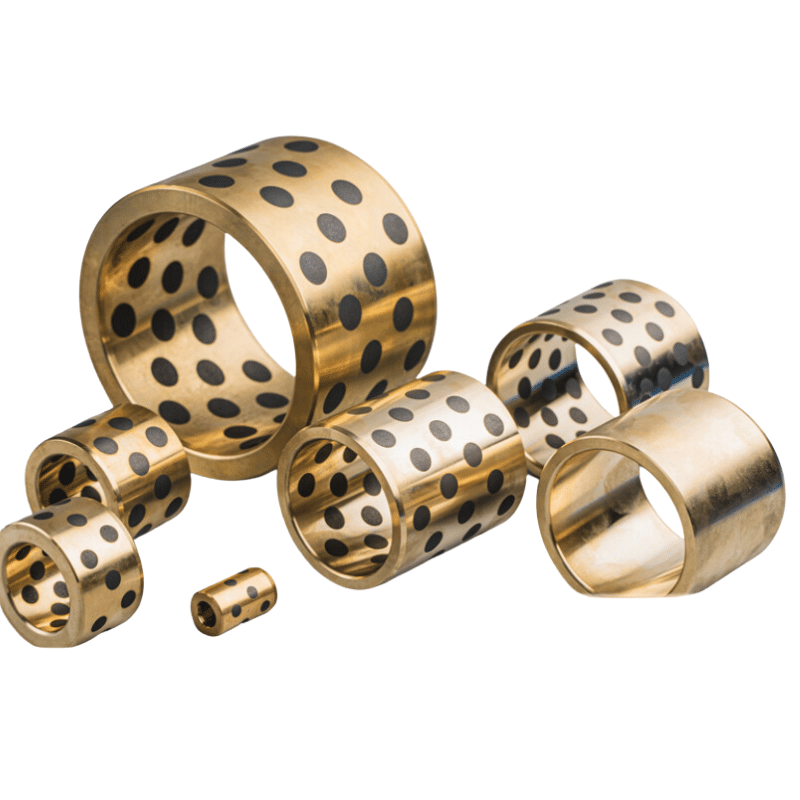can aluminum rust
Bearings and Bushings for the Future: Precision and Customization: Our company, in bearing engineering with decades of experience, designs and develops high-precision self-lubricating bronze bearings & plain bushes. We offer a wide array of sliding bearings tailored to meet specific needs. Renowned for our expertise in custom bronze bushing and slide plate solutions, we provide an expansive selection of bushing metal alloys. Contact us today to benefit from unparalleled services at competitive prices.
can aluminum rust
Explore Other Alloys, Suggested Searches: Copper Brass Bronze Copper Nickel
Bearing Bushing, Search Our Material Alloy

Aluminum Bronze Bushings
Can Aluminum Rust? Stainless Steel Bushings or Aluminum Bronze Bushings, Custom Size
Will Aluminum Bronze Bushings Rust or Corrode?
Aluminum bronze bushings are renowned for their exceptional resistance to both rust and corrosion, making them a superior choice for applications that face harsh environmental conditions, including exposure to seawater.
Rust Resistance
The term “rust” specifically denotes the oxidation of iron-based materials. Aluminum bronze, being a copper-based alloy that incorporates elements like aluminum and potentially tin or silicon, does not undergo rusting as iron or steel does. Consequently, aluminum bronze bushings are immune to rust.
Corrosion Resistance
Although aluminum bronze does not rust, it can experience other types of corrosion. Nevertheless, it is celebrated for its outstanding corrosion resistance, particularly in maritime settings. The addition of aluminum in the alloy significantly bolsters its ability to resist corrosive environments such as those prevalent in seawater. This attribute makes aluminum bronze the material of choice for marine hardware, engine parts, and other applications where corrosion resistance is paramount.
Key Properties
- Mechanical Strength: Aluminum bronze is recognized for its substantial mechanical strength, which makes it suitable for high-stress applications.
- Tarnish Resistance: It also exhibits a high resistance to tarnishing, preserving its aesthetic appeal even when exposed to atmospheric elements.
- Durability: The inherent durability and resistance to wear and tear of aluminum bronze contribute to its longevity, particularly in corrosive environments.
Applications
Due to its robust resistance to corrosion, aluminum bronze is extensively employed in various demanding sectors, including:
- Marine hardware
- Engine components
- Chemical processing equipment
- Valve components
In conclusion, aluminum bronze bushings do not succumb to rust and offer superior resistance to various forms of corrosion. This makes them ideally suited for applications that demand high durability and resistance to harsh environmental factors.
Providing Brass, Bronze, and Specialty Copper Alloys, Copper Alloy Machining Services

Solutions For Every Industry
Searching for Dependable Bushing Solutions? viiplus Has What You Need.

Design Guides, Materials
Bushing design, Comprehensive design manuals covering a range of self-lubricating materials used in all of viiplus’s manufacturing processes.

Technical Guides
Manufacturing On Demand, Technical Guides For Machining Design. Discover the latest in metal alloys, materials, and design tips for manufacturing custom machined and self-lubricating bearing parts.

Get Instant Quote
To receive your instant quote, simply upload your drawing file and choose your production process & bushing material.

Prototyping, Place Order
After you place your order, we will start the production process. You will receive updates when your order has completed production and is ready to be dispatched.

Receive Your custom Parts
We provide precision-inspected high-quality parts, packing lists and documents, and delivery tracking.

